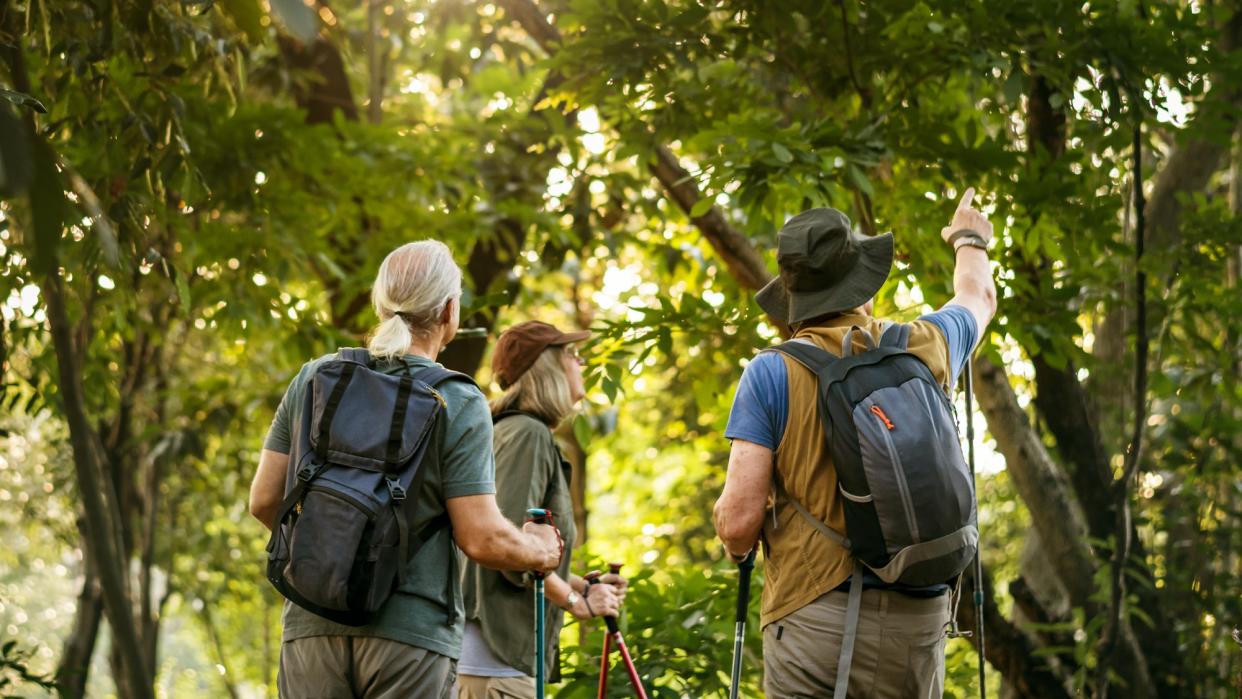Citizen science says anyone can be a scientist

You can be a scientist! Or at least you can play a crucial part in up-and-coming scientific research. Because citizen science is becoming increasingly accepted by researchers as a way to gather data. Modern technology also makes it easy for anyone to participate, using just a smartphone or the internet. Amid a climate crisis in particular, the ability to collect large amounts of data and input can make all the difference in scientific progress.
What is citizen science?
Scientific research is ongoing, and experts need all the help they can get. Citizen science, the "field of research in which members of the general public participate in scientific projects, often in collaboration with professional scientists," Three O'Clock said, is gaining in popularity. While letting the public participate in research might appear unscientific, "the areas of scientific study that utilize information gathered by everyday individuals span the gamut, from environmental science to marine biology," said Popular Science.
Citizen science has become an "increasingly acknowledged approach applied in many scientific domains, and particularly within the environmental and ecological sciences," said a 2022 study published in the journal Nature Reviews Methods Primers. Researchers often create citizen science groups to aid in monitoring and data collection without requiring extra funding. For example, bird-watchers can be considered citizen scientists as they help track species and add to existing databases. "Interested volunteers, amateur scientists, students and educators may network and promote new ideas to advance our understanding of the world," said National Geographic.
Citizen science has also been rapidly expanding in recent years thanks to more technological access. "Armed with phones that have built-in GPS receivers, volunteers can readily provide geo-location information about species or situations in real time," said National Geographic. Online citizen science projects can also "involve members of the public participating in online projects, such as classifying images or transcribing historical documents," said Three O'Clock.
What are the benefits of citizen science?
The growing popularity of citizen science provides a unique opportunity to engage local communities as well as collect large amounts of data, especially from harder to reach places. "We are privileged enough to spend a lot of time in extremely remote areas where conducting scientific research has very high costs and is often prohibitive for some scientists," Marcos Goldin, geologist and citizen science coordinator at the cruise line Aurora Expeditions, said to Popular Science. Citizen science "allows for the research questions addressed to be focused on the needs of the community," and "democratizes access to data," providing "participants with the tools to conduct their own research and decision making," Three O'Clock said.
The largest benefit is the power in numbers. "Data collection isn't just for researchers," said Popular Science. Climate and environmental science can particularly benefit from citizen science. "For issues that affect huge swathes of areas like pollution or radiation, which can only be properly measured at scale, that kind of mass data collection can be vital," said Wired. "Publicly available data gathered by citizens removes the chance of any middleman who may be unable, because of underfunding or political crisis, to gather enough data."
What are the drawbacks?
Critics of citizen science argue that, "untrained citizens could collect shoddy or even biased data that won't have scientific rigor or reliability," Wired said. While data collected by the public could provide valuable insight, the lack of data-collection training could pose issues. "Designing and implementing citizen science projects require a unique set of skills and knowledge outside the research itself, such as communication planning and execution, community building and participant management," the Nature Reviews Methods Primers study said. Without proper oversight and organization, the data collected may not be reliable.
Citizen science could also highlight societal inequality. "Citizen science may engage only certain parts of society, which may potentially fail to include historically underrepresented groups, less-affluent members of society and individuals and communities from certain socioeconomic, racial and ethnic groups," said the study. "This raises concerns about the relevance of citizen science to diverse communities and may affect the quality of results." Pieter Franken, co-founder of the nonprofit Safecast dedicated to citizen science, said to Wired, "Citizen science doesn't just let people collect data, it empowers them and gives them a voice."

